Featured
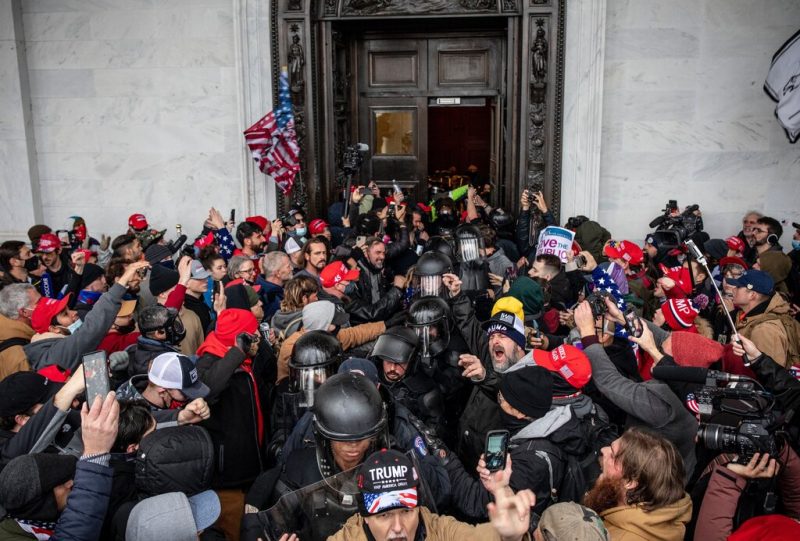 The American Abyss. A historian of fascism and political atrocity on Trump, the mob and what comes next. By Timothy Snyder / NYT
The American Abyss. A historian of fascism and political atrocity on Trump, the mob and what comes next. By Timothy Snyder / NYT
The claim that Trump was denied a win by fraud is a BIG LIE not just because it mauls logic, misdescribes the present and demands belief in a conspiracy. It is a big lie, fundamentally, because it reverses the moral field of American politics and the basic structure of American history. America will not survive the big lie just because a liar is separated from power. It will need a thoughtful repluralization of media and a commitment to facts as a public good. The racism structured into every aspect of the coup attempt is a call to heed our own history. Serious attention to the past helps us to see risks but also suggests future possibility. We cannot be a democratic republic if we tell lies about race, big or small. Democracy is not about minimizing the vote nor ignoring it, neither a matter of gaming nor of breaking a system, but of accepting the equality of others, heeding their voices and counting their votes. Read more
Related: Trump’s Legacy: Voters Who Reject Democracy and Any Politics but Their Own. By Trip Gabirel / NYT
Political / Social
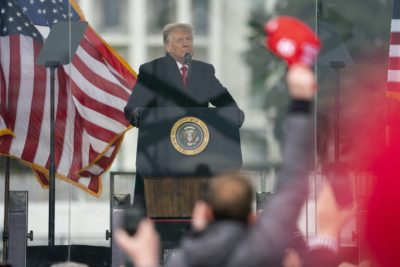 Dr. John Gartner on Trump and terrorism: “If he can’t be president, he will make his force felt.” By Chauncey Devega / Salon
Dr. John Gartner on Trump and terrorism: “If he can’t be president, he will make his force felt.” By Chauncey Devega / Salon
Dr. John Gartner is one voice who has been sounding the alarm about Trump’s mental health and the danger he poises to the United States and the world. Gartner is a psychologist, psychoanalyst and former professor at the Johns Hopkins University Medical School and also the founder of Duty to Warn. He was a contributor to the 2017 bestseller “The Dangerous Case of Donald Trump: 27 Psychiatrists and Mental Health Experts Assess a President” and is featured in the new documentary “Unfit: The Psychology of Donald Trump.” In this conversation (which took place several days before Wednesday’s events), Gartner was almost eerily prescient, warning that Trump is a type of terrorist who will continue to attack American democracy and the American people in search of vengeance for his defeat in the 2020 Election. Read more
Related: What Trump Shares With the ‘Lost Cause’ of the Confederacy. By Karen L. Cox / NYT
 This is the America that Black people know. By Cori Bush / Wash Post
This is the America that Black people know. By Cori Bush / Wash Post
Many have said that what transpired on Wednesday was not America. They are wrong. This is the America that Black people know. To declare that this is not America is to deny the reality that Republican members of the U.S. House and Senate incited this coup by treasonously working to overturn the results of the presidential election. It’s to deny the fact that one of my senators, Josh Hawley, went out of his way to salute the white supremacists before their attempted coup. Sen. Josh Hawley (R-Mo.) speaks about the electoral college vote in the Senate on Jan. 6, hours after a pro-Trump mob broke into the U.S. Capitol and disrupted proceedings. Read more
Related: The white backlash has begun. Again. By Ashton Lattimore / Prism Reports and the Daily Kos
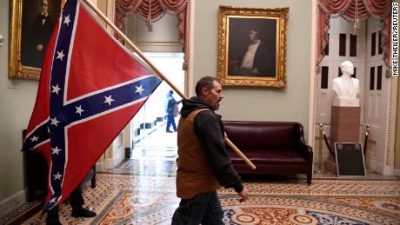 America in 2021: Racial Progress in the South, a White Mob in the Capitol. By Astead W. Herndon / NYT
America in 2021: Racial Progress in the South, a White Mob in the Capitol. By Astead W. Herndon / NYT
The day after Georgia elected a Black descendant of sharecroppers and a young Jewish filmmaker to be U.S. senators, underscoring the rising political power of racial and religious minorities, the forces of white grievance politics struck back. At the “People’s House” in Washington, a predominantly white mob in support of President Trump’s attempts to overturn the election overtook the Capitol building by brute force. Confederate flags flew at the seat of American democracy. A gallows was erected, with a noose hanging in the air. It was as stark a contrast as any, one day that illustrated the nation’s original paradox: a commitment to democracy in a country with a legacy of racial exclusion. Read more
Related: Confederate Battle Flag in the Capitol: A ‘Jarring’ First in U.S. History. By Maria Cramer / NYT
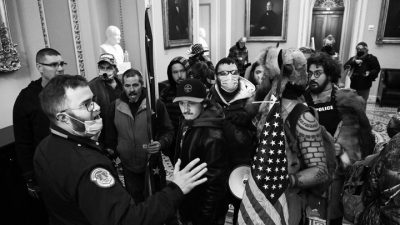 The Inaction of Capitol Police Was by Design. By Kelllie Carter Jackson / The Atlantic
The Inaction of Capitol Police Was by Design. By Kelllie Carter Jackson / The Atlantic
According to the Associated Press, the Capitol Police knew about the potential threat of the riot days before it took place, but rejected offers of help from the National Guard and the FBI. Officials said that they wanted to avoid using federal force against Americans, as they had done this summer. The choice to turn down help amid warnings of an insurrection is as revealing as it is disturbing: Why did law enforcement assume that they’d encounter violence from protesters marching for Black lives in June, but think that a largely white crowd of pro-Trump extremists and conspiracy theorists would remain peaceful? The difference in the Capitol Police’s response shocked many who bemoaned the double standard. But police brutality against Black Americans and police inaction toward white Americans is not some surprising anomaly; it is the status quo. Read more
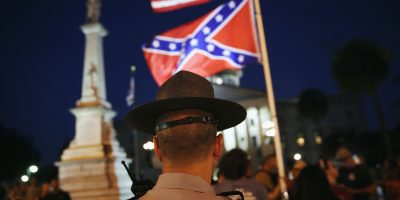 Unredacted FBI Document Sheds New Light on White Supremiacist Infiltration of Law Enforcement. By Alice Speri / The Intercept
Unredacted FBI Document Sheds New Light on White Supremiacist Infiltration of Law Enforcement. By Alice Speri / The Intercept
THE FBI HAS long been concerned about the infiltration of law enforcement by white supremacist groups and its impact on police abuse and tolerance of racism, the unredacted version of a previously circulated document reveals. The FBI threat assessment report was released by Rep. Jamie Raskin, chair of the House Committee on Oversight and Reform’s Civil Rights and Civil Liberties Subcommittee, ahead of a hearing about the white supremacist infiltration of local police departments scheduled for Tuesday. Read more
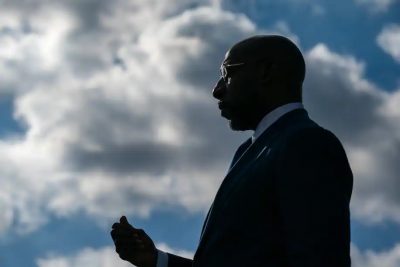 A Black senator from Georgia. By Clyde McGrady / Wash Post
A Black senator from Georgia. By Clyde McGrady / Wash Post
As churches became more central to Black life, ministers became multifaceted, leading W.E.B. Du Bois to declare that “The preacher is the most unique personality developed by the Negro on American soil,” a man who “found his function as the healer of the sick, the interpreter of the Unknown, the comforter of the sorrowing, the supernatural avenger of wrong, and the one who rudely but picturesquely expressed the longing, disappointment, and resentment of a stolen and oppressed people.” Read more
Related: Raphael Warnock is the latest HBCU grad to make history in US politics. By Nicole Chavez / CNN
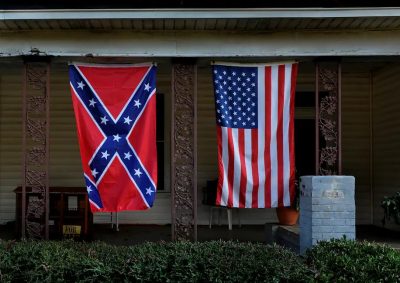 Don’t celebrate blue Georgia yet. The ‘old’ Georgia stubbornly endures. By Tammy Joyner / Wash Post
Don’t celebrate blue Georgia yet. The ‘old’ Georgia stubbornly endures. By Tammy Joyner / Wash Post
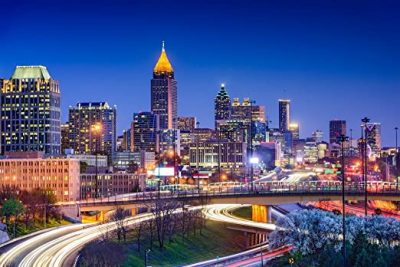 We Need a Second Great Migration. Georgia illuminates the path to Black power. It lies in the South. Follow me there. By Charles Blow / NYT
We Need a Second Great Migration. Georgia illuminates the path to Black power. It lies in the South. Follow me there. By Charles Blow / NYT
A year ago this week, I packed some bags and left New York City for Atlanta. I’d lived in New York for 26 years. The city made me feel awake and alive — buildings tickling the sky, trains snaking underfoot. There was a seductive muscularity to the city, a feeling of riding the razor between your destiny and your demise. But the exquisite fierceness of the city, its blur of ambition and ingenuity, didn’t hide the fact that many of my fellow Black New Yorkers were locked in perpetual oppression — geographically, economically and politically isolated. All around the North, Black power, if it existed, was mostly municipal, or confined to regional representation. Black people were not serving as the dominant force in electing governors or senators or securing Electoral College votes. Read more
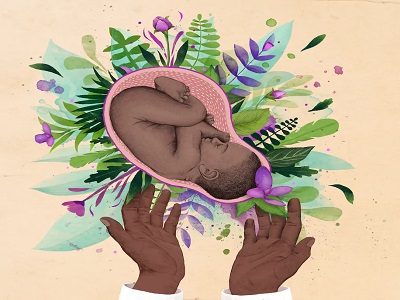 Mortality rate for Black babies is cut dramatically when they’re delivered by Black doctors, researchers say. By Tonya Russell / Wash Post
Mortality rate for Black babies is cut dramatically when they’re delivered by Black doctors, researchers say. By Tonya Russell / Wash Post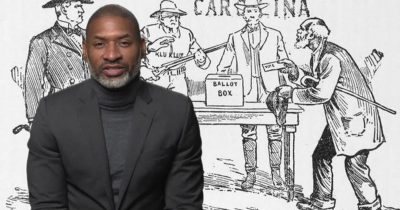 Charles Blow on the greatest threat to our democracy: White supremacy. By Robbyn Mc Fadden / CBS News Video
Charles Blow on the greatest threat to our democracy: White supremacy. By Robbyn Mc Fadden / CBS News Video
There are many historical precedents for the way White supremacy responds when that perceived supremacy is threatened. One example unfolded during Reconstruction. At the end of the Civil War, several Southern states were majority-Black, and several others were within striking distance of being majority-Black. Then, the ratification of the 15th Amendment gave Black men the right to vote, which in turn made some of the electorates majority-Black. This was a serious threat to absolute White power, so White supremacists banded together in Mississippi (a Black power center during Reconstruction) and formed the Red Shirts, a group of vigilantes who used pressure, intimidation and violence to prevent Black people from voting. Watch here
 I Desegregated the University of Georgia. History Is Still in the Making. By Charlayne Hunter-Gault / NYT
I Desegregated the University of Georgia. History Is Still in the Making. By Charlayne Hunter-Gault / NYT
Sixty years ago, I walked onto the campus of the University of Georgia along with my high school classmate Hamilton Holmes. Ordinarily this would have been a routine exercise, as it had been for students since the institution was established in 1785. Except in all that time, not one Black person had ever been allowed to attend the University of Georgia. Hamilton and I wanted to change that, though not because we wanted to make history. We applied to UGA with the same kind of dreams and ambitions as every student there. Hamp, as he was widely known, wanted to be a doctor. I had wanted to be a journalist since I first read the comic strip “Brenda Starr, Reporter” when I was around 5. Read more
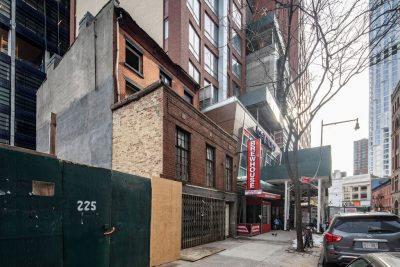 Preserving New York’s Ties to the Underground Railroad. By John Freeman Gill / NYT
Preserving New York’s Ties to the Underground Railroad. By John Freeman Gill / NYT
Are landmarks that celebrate Black history given proper consideration by city government? That is a question hovering over two threatened antebellum houses once owned by abolitionists, one in Brooklyn and one in Manhattan, that have come before the Landmarks Preservation Commission in recent months. Although slavery was not fully abolished in New York State until 1827 and the city maintained strong ties to the Southern slave economy until the Civil War, a small number of courageous New Yorkers played a significant role in the effort to abolish slavery and help those fleeing bondage. Shown is The Greek Revival antebellum rowhouse at 227 Duffield Street, in Downtown Brooklyn, which was owned by the abolitionists Harriet and Thomas Truesdell and may have been a stop on the Underground Railroad. Read more
 I Spent 35 Years Trying To Convince The World (And Myself) That I’m White. By Leah Olson / HuffPost
I Spent 35 Years Trying To Convince The World (And Myself) That I’m White. By Leah Olson / HuffPost
“Hey! It’s Bushroot! In the flesh!” Bushroot was a squat, gnome-like creature that one of the bros had sketched out at the beginning of the semester to be our dorm mascot. It had bulging eyes and a dark shaded face ringed by short spiky hair. Bushroot had enough similarities to my appearance that I had to believe it. The shaded skin, for one. And the spiky hair. I understood that my Afro-style cropped cut was an unconventional look for our white, affluent, sorority-laden upstate New York campus. It was for me, too. I had never done anything so bold when it came to my appearance. I had gotten a burst of confidence after high school, though, and wanted to make a start strong in this new chapter in my life. I wanted to show up to college and really be someone. I just didn’t want to be the dorm mascot. Read more
 Crisis Behind the All-White Best Children’s Album Category. By Samantha Hissong / Rolling Stone
Crisis Behind the All-White Best Children’s Album Category. By Samantha Hissong / Rolling Stone
The only artists up for the 2021 Best Children’s Album Grammy are white — which, in a year of reckoning for the Recording Academy over diversity problems, has drawn wide ire, and led to three of the five white nominees writing to the Academy last month asking for their names to be removed from the ballot to make room for artists of color. The Academy has agreed to take them off the slate but is leaving the award open only to the remaining two nominees, sources tell Rolling Stone. Shown is Pierce Freelon, whose debut children’s music album, D.A.D, dropped in July Read more
Sports
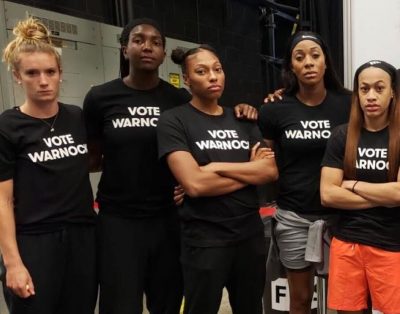 WNBA players helped oust Kelly Loeffler from the Senate. Will she last in the league? By Candace Buckner / Wash Post
WNBA players helped oust Kelly Loeffler from the Senate. Will she last in the league? By Candace Buckner / Wash Post
 It’s time for golf to make a break with Trump. By Barry Svrluga / Wash Post
It’s time for golf to make a break with Trump. By Barry Svrluga / Wash Post
On the day after the U.S. Capitol was stormed by a reckless mob of President Trump’s supporters — a throng spurred on by the president himself — it might make sense that Annika Sorenstam and Gary Player could have waked up, checked out the headlines and said to themselves, “You know, I ought to decline that Presidential Medal of Freedom after all.” Accepting an honor from this president at this time isn’t showing respect to the office. It’s willingly associating with a delusional leader who has done his best to dismantle our democracy. Read more
Site Information
Visit our home page for more articles, book/podcast and video favorites. And at the top of this page register your email to receive notification of new editions of Race Inquiry Digest. Click here for earlier Digests.
About Race Inquiry and Race Inquiry Digest. The Digest is published on Mondays and Thursdays.
Use the buttons below to share the Digest in an email, or post to your Facebook, Linkedin or Twitter accounts.
 Mike Tomlin Reaches Another N.F.L. Postseason With Fewer Black Peers.
Mike Tomlin Reaches Another N.F.L. Postseason With Fewer Black Peers.